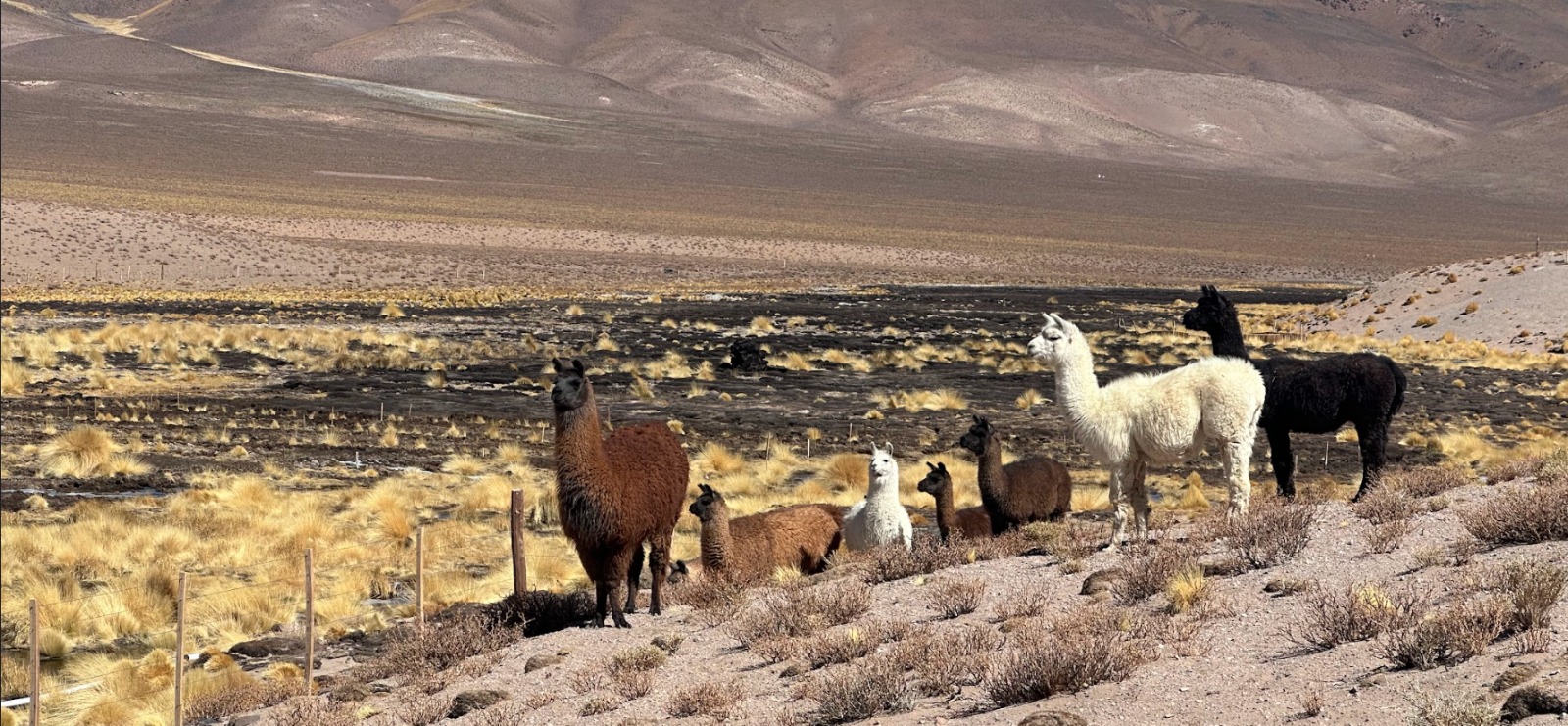During the IUCN World Conservation Congress, the global conservation community adopted two key motions that strengthen environmental protection in Argentina: one calling for the urgent preservation of high mountain wetlands in Latin America, and another focused on safeguarding the environmental integrity of the San Matías Gulf.
Two Strategic Ecosystems in the Spotlight
From 9 to 15 October, governments, civil society organizations, and Indigenous Peoples’ representatives from around the world are gathering in Abu Dhabi (United Arab Emirates) to discuss collective actions for nature conservation and the protection of human rights.
In this context, the motions adopted by more than 1,400 IUCN Members —including States, Indigenous Peoples’ organizations, and NGOs such as FARN, an IUCN member since 1991— represent an important step forward for Argentina’s environmental agenda.
Motion 24, “Declaration on the urgent preservation of high mountain wetlands in Latin America and other regions of the world,” calls for immediate action to conserve and restore these fragile ecosystems, which are vital for water regulation, biodiversity conservation, and climate stability. The motion urges States to strengthen local community participation, implement nature-based solutions, and increase investments for the protection and restoration of these wetlands. It also recognizes their ecological and cultural importance and calls for their inclusion in national policies and decision-making processes.
This motion was sponsored by the Peruvian Society for Environmental Law (SPDA) and co-sponsored by FARN, Fundación Humedales, Centro Mexicano de Derecho Ambiental (CEMDA), Patronato Nor Yauyos Cochas, and the Global Nature Foundation.
Motion 26, “Conservation of the environmental integrity of the San Matías Gulf in Argentina,” seeks to halt the expansion of hydrocarbon activities in this key marine ecosystem. The San Matías Gulf is a rich environment, home to the south right whale and its younglings. The motion calls on the national government and the Province of Río Negro to repeal regulations that weaken environmental safeguards, setting an important precedent against potential normative regressions in other parts of the country.
This motion was sponsored by FARN and co-sponsored by Fundación Patagonia Natural, Fundación Hábitat y Desarrollo, Centro Desarrollo y Pesca Sustentable, Fundación Biodiversidad, Centre international de droit comparé de l’environnement, Fundación Vida Silvestre Argentina, and Vida Silvestre Uruguay.
Energy Transition with a Focus on Human Rights and Biodiversity
In addition to the motions already adopted, the Congress is currently discussing Motion 104, “Safeguarding biodiversity and human rights in energy transition mineral governance,” proposed by A Rocha Ghana and co-sponsored by FARN.
This motion recognizes that a just and equitable energy transition must integrate climate action with the protection of biodiversity and the respect for human rights, particularly the rights of Indigenous Peoples and local communities. It reaffirms their right to full and effective participation and to free, prior, and informed consent.
The motion highlights that over 50% of the minerals required to achieve global climate goals are located within or near Indigenous territories, where poorly regulated mining has already led to biodiversity loss, pollution, and human rights violations. It therefore calls on States to ensure responsible mineral governance, strengthen environmental protection measures —including the establishment of protected areas— and promote sustainable patterns of production and consumption that reduce material and energy demand.
A Global Mandate for Conservation and Rights
The IUCN remains the only international forum that brings together governments, Indigenous Peoples, and civil society organizations in a single decision-making space. Its resolutions shape the global conservation agenda and guide collective action for years to come.
With these motions, the High Andean wetlands and the San Matías Gulf have become global priorities, placing renewed international attention on how Argentina advances in the effective protection of its most valuable ecosystems — ensuring that environmental conservation and human rights go hand in hand.
